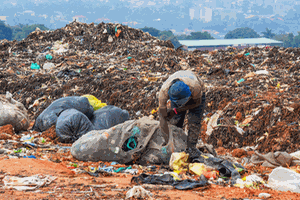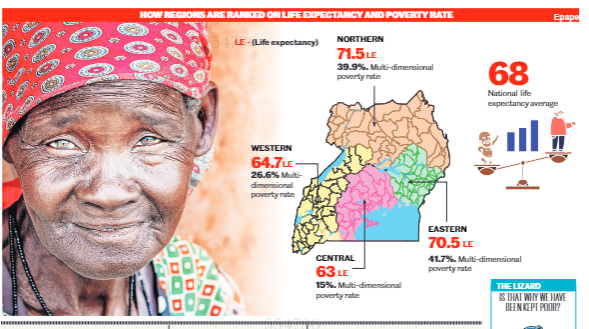Busoga gets Shs10b to fight neglected diseases

Rebecca Kadaga (right), the first deputy prime minister and Minister for East African Community Affairs during the launch of the campaign against Non Communicable diseases in Busoga sub region over the weekend. Second left is Rev Chris Kyewe of Busoga diocese, Sheikh Dr Hussein Muhammed Bowa the Busoga regional khadi and Bishop Edward Munene (second right) the head of Pentecostal Churches in Busoga. PHOTO | ABUBAKER KIRUNDA
Busoga Sub-region has received a Shs10 billion boost to help in the fight against non-communicable diseases (NCDs), also known as neglected or non-transmitted diseases, which are on the rise, according to health officials.
Mr David Ssemakula, the Jinja Regional Referral Hospital Administrator, for instance, says non-communicable diseases patients are among the highest-ranked among those registered at the hospital, making it a “serious concern” in the Sub-region.
This, he says, is because its existence is changing from manifesting among the aged and rich people to the young and poor.
“Much attention is needed for the fight against neglected diseases because they are currently affecting the young and poor people yet we used to call it a disease for the rich and the elderly,” Mr Ssemakula said at the weekend.
According to him, on average, about 150 NCD patients are attended to at Jinja Regional Referral hospital every day. He attributes the big number to inconsistency in drug uptake by patients, lack of drugs, late detection of the diseases, few health workers dealing with NCDs and lack of proper information on the number of patients, among others.
For that reason, Mr Ssemakula says people should be encouraged to monitor their diets and form clubs for exercises if this problem is to be reduced.
The First Deputy Prime Minister, Ms Rebecca Kadaga, said the State of Minnesota in the United States has offered Shs10 billion to tackle hypertension, diabetes, cancer, epilepsy, sickle cell and asthma among others.
Ms Kadaga was speaking during the launch of Smart Africa Community Development Consortium, which comprises five Non-Government Organisations (NGOs) that are set to implement this programme in Busoga Sub-region over the next five years.
According to Ms Kadaga, every district in Busoga Sub-region will be covered during the project implementation because the problem cuts across all of them.
“The consortium resolved that 60 Sub-counties from the 12 Districts that make up Busoga Sub-region be chosen to pilot this project, with each selecting five sub counties,” she said.
Ms Kadaga said the Rebecca Alitwala Kadaga Education Initiative (RAKEI), an NGO for which she is a patron, is spearheading this fight against neglected diseases.
She explained that the organisations in the consortium include; Pathways to Hope Africa (through which the State of Minnesota will channel the funds), Fountain Initiative International, Diaspora Care and Impact Africa Services, all based in the United States, and RAKEI.
Dr Nelson Muzira, the consortium chairperson, said the project implementation commences on July 1, 2023.
Dr Muzira explained that the funding is as a result of a survey conducted by the University of Minnesota in conjunction with Makerere University and RAKEI, which revealed that Eastern Uganda tops in NCDs, with Busoga leading in the Sub-regions that constitute the Eastern part of Uganda.
“This survey was started in 2019 and completed in 2022, with results indicating that the problem of NCDs was highest in our Sub-region, especially in women; so, we started to look for funders and the State of Minnesota came on board,” he said.
Project implementation
Dr Muzira said the implementers of the project will use the already-existing health structures, including building capacities for health workers, outreaches to sensitise the residents about the dangers of NCDs and creating awareness through the media, among others. Mobile clinics for screening and diagnosing patients will also be created.
Dr Gerald Mutungi, the assistant commissioner in-charge of NCDs in the Ministry of Health, said the intervention by the consortium is “timely” because it is for every person.
He noted that salt, sugar, alcohol, lack of exercise resonates with almost everyone, and therefore, sensitisation on their regular use should be done through concerted effort.
According to Dr Mutungi, the government has considered the recruitment of nutritionists at every Health Centre III to teach people about the best practices to avoid developing NCDs.


